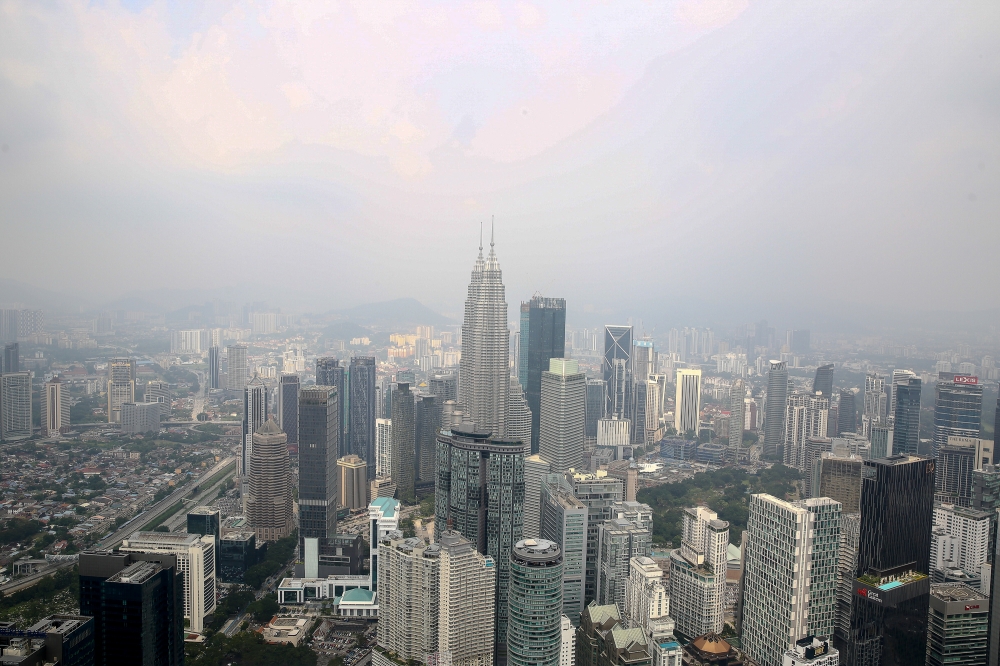

KUALA LUMPUR, Feb 15 — Malaysia is still considered a "flawed democracy” according to the 2023 Economist Intelligence Unit (EIU) Democracy Index released today, scoring only 7.29 out of 10, a minor drop from last year’s score of 7.30.
Across the five yardsticks in the index — electoral process and pluralism, functioning of government, political participation, political culture, and civil liberties — Malaysia scored the worst in civil liberties with a score of 5.88 and best in electoral process and pluralism with a score of 9.58.
"Asia is the most dynamic region of the world in terms of economic growth, but it continues to lag behind in terms of democratisation.
"More than half the countries covered by the index regressed in 2023, recording a deterioration in their democracy scores,” the report’s editor Joan Hoey said in an accompanying press release by the research and analysis division of London-based financial magazine The Economist.
Despite remaining stagnant in the global ranking at the 40th place, and 6th place in the Asia and Australasia region, Malaysia performed best in South-east Asia.
Out of 165 independent states and two territories, the index listed a total of 50 countries in the flawed democracy bracket, and only 24 full democracies, including Greece, which has re-entered the full democracy bracket.
Israel, Botswana and Italy also fell into the list of flawed democracies, but Malaysia was still ranked lower than them.
There were 34 and 59 countries listed as hybrid and authoritarian regimes respectively.
The EIU assigns "full democracy” status to countries that score 8 and above, while those between 7.99 to 5.99 as "flawed democracy”.
Countries that score between 5.99 to 3.96 are what the agency termed "hybrid regime”, governments that are borderline authoritarian.
"Looking at Asia and Australasia by sub-region reveals big regional disparities in the quality of governance, democratic freedoms and social cohesion.
"South Asia and South-east Asia already had the lowest scores of all the continent’s sub-regions, and setbacks in Bangladesh, Cambodia, Pakistan, Sri Lanka and Thailand mean that the two regions have fallen even further behind,” the unit said in their report.
In the electoral process and pluralism bracket, Malaysia performed better than its neighbours — Indonesia and Singapore — and beat its former coloniser Japan, which the index considers a full democracy.
But other countries in the region — Papua New Guinea, Timor-Leste, Philippines and Singapore — outperformed Malaysia in civil liberties.
"Another factor in the Asia region’s regression in recent years has been an erosion of civil liberties.
"Some governments cite concerns about national security and social cohesion to justify restrictions on freedom of speech and of the media,” the unit said in its press release.
In the Asia and Australasia region, 15 countries, which is more than half of the region, declined in their scores and only eight countries improved.
However, the global index in democracy is not looking well either. In 2023, the score plunged to 5.23, from 5.29 in 2022, marking a new low since the first published EIU index in 2006.
Globally, only 32 countries improved their index score in 2023 albeit by a miniscule margin and often from a low base, and 68 countries recorded a drop in their scores.
"The scores for 67 countries stayed the same, painting a global picture of stagnation and regression,” the unit said in their report.
In 2022, Malaysia elected reformist Datuk Seri Anwar Ibrahim as prime minister, yet many laws which restrict civil liberties are still in force. Human rights groups have been urging the government to promptly deliver the reforms promised during the election, including the repealing of laws, transparency in government processes and others.
At the international stage, numerous United Nations member states recommended that Malaysia amend or repeal laws that curb freedom of speech, expression and assembly, at the Universal Periodic Review (UPR) last month.
You May Also Like


